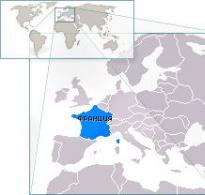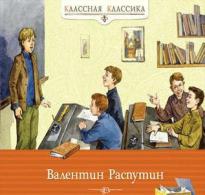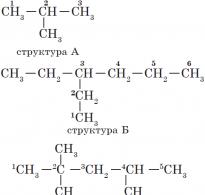A feast during the plague read the summary. The work "feast during the plague" in a brief retelling. "Feast in Time of Plague"
A Feast in the Time of Plague is a short play that is part of the Little Tragedies cycle, created in 1830. It includes 12 scenes and 3 acts. There is an atmosphere of death and hopelessness in the text.
Although her characters are alive and happy enough during the feast, the reader understands that they, too, will soon die. From this play, the phraseological unit “feast during the plague” entered the language, the brief content of which boils down to the following explanation: joy in the midst of death, disaster, grief.
“A Feast in the Time of Plague” is a fragment that has become a full-fledged work. This is a translation of the great work of the English romantic poet John Wilson "City of the Plague". It was published in 1816 and consisted of scenes that were loosely connected.
They describe the life of London during the epidemic. There are many characters of different characters: murderers, astrologers, girls, young people. The story is written in a romantic vein, has a weak plot and a blurry plot.
In 1830 Pushkin read this work. After some time, he visited Boldin, which was surrounded by quarantine zones, and before that he visited a hospital where he saw people with the plague. This influenced his idea to write something on this topic.
From the abundance of scenes in Wilson's play, Pushkin chose the episode about the feast. He processed this passage of text in his own style, filled it with a separate idea, his own style, poetics, integrity. In the original play, the plot does not end with the departure of the priest, after which there are still conversations, declarations of love, and even a duel.
Pushkin, on the other hand, shifted the emphasis, singled out this episode as special, culminating, which made the image of the priest central, the embodiment of conscience and truth. This gave the play integrity and completeness, which was lacking in the original text.
Important! Pushkin finalized the characters, "finished" a few strokes to their images, and created a story for each. Thus, the episode turned from a text into a full-fledged work with a characteristic ideological and plot content.
Plot and composition
 The plot of the play is tied to the image of the fear of death. In front of him, all people behave differently, and this diversity of behavior is what Alexander Sergeevich wanted to portray.
The plot of the play is tied to the image of the fear of death. In front of him, all people behave differently, and this diversity of behavior is what Alexander Sergeevich wanted to portray.
Plot elements are fragments of songs, poems, sketches of the behavior of people who are feasting. Some have come to terms with death, others continue to live, others try not to think about it.
The diversity of behavior creates a general picture of society during an epidemic: hopelessness, confusion, uncertainty.
The climax of the play is the appearance of a priest who criticizes the merry people. He appeals to them with a request to change their minds and rethink their lives, saying that such behavior during a time of universal grief is inappropriate.
The conflict of the play lies in the fact that it lacks any external struggle: people are faced with complex philosophical issues, death, the meaning of life, but they are just passive residents of the city who do not want to do anything.
All that remains for them is to accept their fate and feast in the midst of the raging death. The finale of the play - the reflections of the chairman - indicates that the struggle continues within each participant in the performance.
 The text has several compositional features that distinguish it from the entire cycle:
The text has several compositional features that distinguish it from the entire cycle:
- the external action of the plot in the play is very weak - practically no events take place, the characters just drink, eat and sing songs. The development takes place within the characters, the tension of their position during the epidemic is determined by their words and songs;
- all participants in the feast are the embodiment of a certain type of attitude towards death. Each of the heroes has their own reasons for attending the feast. Louise is afraid of loneliness, The young man wants to forget himself at such an event, Mary came to pour out her feelings and sing about her love;
- the climax is revealed not in action, but in dialogue. The Priest and the Chairman talk about death, attitudes towards it and the need to remain brave;
- the whole story is filled with songs, poems, monologues and dialogues.
This approach to the description of the plot creates an atmosphere of tension that existed during the time of the plague.
Main characters and characters
The play has the following characters:
- Chairman Walsingam is a character who is very afraid of death, he glorifies the "kingdom of the plague", says that her actions are an occasion for pleasure. At the climax of the play, he realizes the cruelty of his thoughts. After talking with the priest, the chairman realizes that the behavior of him and the other members of the feast is an admission of his own weakness and loss. While the feast continues, he continues to think about his behavior. At this Pushkin breaks off the story, creating an open ending;
- the priest is the key image in the play. The voice of reason speaks through him, he addresses the conscience of the feasting, reminds them that death is near, that their behavior is not joy or protest, it is surrender in the face of death.
- Mary is a thoughtful girl who tells the story of her life through song. She reminisces about her youth, happy days. Through the lines of the song, she shows herself ready for sacrifice, a faithful and devoted girl.
Important! There are few characters in the play, but through their behavior, words and stories, the key themes and ideas of the work are revealed - the question of a person's attitude to death, the search for the meaning of life, the formation of a person's position in relation to death around.
A brief retelling of the events taking place in the work will not take much time. The action takes place in London in 1665 during the plague. Everyone in the city mourns the number of deaths. On the same street, several men and women gathered at a table to indulge in carefree fun. They proclaim toasts, sing songs, remember the dead.
 Mary starts singing one song. In it, she talks about her life, which was broken by the epidemic, in the song she asks that her lover after her death not approach her, but run away and continue to live.
Mary starts singing one song. In it, she talks about her life, which was broken by the epidemic, in the song she asks that her lover after her death not approach her, but run away and continue to live.
Some of the guests begin to praise Mary, some to criticize. During a heated discussion, a cart with the dead is being transported outside the window. He begins to sing Walsings, calling not to lose heart and not to lose hope.
Then a priest approaches the feasters and begins to criticize them for such behavior. He is driven out of the house.
Only Valsingam suddenly realizes that the priest is right, and begins to justify such behavior with horror and fear, says that his house is empty and he cannot return there. The priest asks for forgiveness from him and finally leaves. The feast at this time continues, everyone is having fun, and only the chairman is immersed in thought, does not take part in the feast.
Useful video
A Feast in the Time of Plague (From Wilson's Tragedy: The city of the plague) Tragedy (1830)
There is a set table outside, at which several young men and women are feasting. One of the feasters, a young man, turning to the chairman of the feast, recalls their mutual friend, the cheerful Jackson, whose jokes and witticisms amused everyone, enlivened the feast and dispersed the darkness that a ferocious plague now sends to the city. Jackson is dead, his chair at the table is empty, and the young man offers a drink in his memory. The Chairman agrees, but believes that drinking should be done in silence, and everyone drinks silently in memory of Jackson.
The chairman of the feast turns to a young woman named Mary and asks her to sing a dull and drawn-out song of her native Scotland, so that later she can turn to fun again. Mary sings about her native side, which flourished in contentment, until misfortune fell upon her and the side of fun and work turned into a land of death and sadness. The heroine of the song asks her darling not to touch her Jenny and leave her native village until the infection is gone, and vows not to leave her beloved Edmond even in heaven.
The chairman thanks Mary for the mournful song and suggests that once her region was visited by the same plague as the one that now mows down all living things here. Mary recalls how she sang in her parents' hut, how they loved to listen to their daughter... But suddenly the caustic and impudent Louise breaks into the conversation with the words that such songs are not in fashion now, although there are still simple souls ready
melt from women's tears and blindly believe them. Louise screams that she hates the yellowness of that Scottish hair. The chairman intervenes in the dispute, he calls on the feasters to listen to the sound of the wheels. A cart loaded with corpses approaches. The negro rules the cart. At the sight of this sight, Louise becomes ill, and the chairman asks Mary to splash water in her face to bring her to her senses. With her swoon, the chairman assures, Louise proved that "the gentle is weaker than the cruel." Mary reassures Louise, and Louise, gradually coming to her senses, tells that she dreamed of a black and white-eyed demon who called her to him, in his terrible cart, where the dead lay and babbled their "terrible, unknown speech." Louise doesn't know if it was in a dream or in reality.
The young man explains to Louise that the black cart has the right to travel everywhere, and asks Walsingham to sing a song, but not a sad Scottish one, “but a violent, Bacchic song”, and instead of a Bacchic song, the chairman sings a gloomy inspirational hymn in honor of the plague. In this hymn, praise is given to the plague, which can bestow an unknown rapture that a strong-willed person is able to feel in the face of threatening death, and this pleasure in battle is “immortality, perhaps, a guarantee!” Happy is he, sings the chairman, to whom it is given to feel this pleasure.
While Walsingam is singing, an old priest enters. He reproaches the feasters for their blasphemous feast, calling them atheists, the priest believes that with their feast they commit a desecration of the "horror of sacred funerals", and with their delights "confuse the silence of the tombs." The feasters laugh at the gloomy words of the priest, and he conjures them with the Blood of the Savior to stop the monstrous feast if they wish to meet the souls of their departed loved ones in heaven and go home. The chairman objects to the priest that their homes are sad, and youth loves joy. The priest reproaches Walsingam and reminds him how only three weeks ago he hugged his mother's corpse on his knees "and wailed over her grave." He assures that now the poor woman is crying in heaven, looking at her feasting son. He orders Valsingam to follow him, but Valsingam refuses to do so, because he is kept here by despair and a terrible memory, as well as by the consciousness of his own lawlessness, he is kept here by the horror of the dead emptiness of his native home, even the shadow of his mother is unable to take him away from here, and he asks the priest to leave. Many admire Walsingham's bold rebuke to the priest, who conjures the wicked with the pure spirit of Matilda. This name brings the chairman into mental confusion, he says that he sees her where his fallen spirit will no longer reach. A woman remarks that Walsingam has gone mad and "raves about his buried wife." The priest persuades Walsingam to leave, but Walsingam, in the name of God, begs the priest to leave him and go away. After invoking the Holy Name, the priest leaves, the feast continues, but Walsingam "remains in deep thought."
There is a set table outside, at which several young men and women are feasting. One of the feasters, a young man, turning to the chairman of the feast, recalls their mutual friend, cheerful Jackson, whose jokes and witticisms amused everyone, enlivened the feast and dispersed the darkness that a ferocious plague now sends to the city. Jackson is dead, his chair at the table is empty, and the young man offers a drink in his memory. The Chairman agrees, but believes that drinking should be done in silence, and everyone drinks silently in memory of Jackson.
The chairman of the feast turns to a young woman named Mary and asks her to sing a dull and drawn-out song of her native Scotland, so that later she can turn to fun again. Mary sings about her native side, which flourished in contentment, until misfortune fell upon her and the side of fun and work turned into a land of death and sadness. The heroine of the song asks her darling not to touch her Jenny and leave her native village until the infection is gone, and vows not to leave her beloved Edmond even in heaven.
The chairman thanks Mary for the mournful song and assumes that once her region was visited by the same plague as the one that now mows down all living things here. Mary recalls how she sang in her parents' hut, how they loved to listen to their daughter... But suddenly the caustic and impudent Louise breaks into the conversation with the words that such songs are not in fashion now, although there are still simple souls ready to melt from women's songs. tears and blindly believe them. Louise screams that she hates the yellowness of that Scottish hair. The chairman intervenes in the dispute, he calls on the feasters to listen to the sound of the wheels. A cart loaded with corpses approaches. The negro rules the cart. At the sight of this sight, Louise becomes ill, and the chairman asks Mary to splash water in her face to bring her to her senses. With her swoon, the chairman assures, Louise proved that "the gentle is weaker than the cruel." Mary reassures Louise, and Louise, gradually coming to her senses, tells that she dreamed of a black and white-eyed demon who called her to his terrible cart, where the dead lay and babbled their "terrible, unknown speech." Louise doesn't know if it was in a dream or in reality.
The young man explains to Louise that the black cart has the right to travel everywhere, and asks Walsingham to sing a song, but not a sad Scottish one, “but a violent, Bacchic song”, instead of a Bacchic song, to stop disputes and “consequences of female fainting”, and the chairman instead of a Bacchic song sings a gloomy inspirational hymn in honor of the plague. In this hymn, praise is given to the plague, which can bestow an unknown rapture that a strong-willed person is able to feel in the face of threatening death, and this pleasure in battle is “immortality, perhaps, a guarantee!” Happy is he, sings the chairman, to whom it is given to feel this pleasure.
While Walsingam is singing, an old priest enters. He reproaches the feasters for their blasphemous feast, calling them atheists, the priest believes that with their feast they commit a desecration of the "horror of sacred funerals", and with their delights "confuse the silence of the tombs." The feasters laugh at the gloomy words of the priest, and he conjures them with the Blood of the Savior to stop the monstrous feast if they wish to meet the souls of their departed loved ones in heaven and go home. The chairman objects to the priest that their homes are sad, and youth loves joy. The priest reproaches Walsingam and reminds him how just three weeks ago he hugged his mother's corpse on his knees "and wailed over her grave." He assures that now the poor woman is crying in heaven, looking at her feasting son. He orders Valsingam to follow him, but Valsingam refuses to do so, because he is kept here by despair and a terrible memory, as well as by the consciousness of his own lawlessness, he is kept here by the horror of the dead emptiness of his native home, even the shadow of his mother is unable to take him away from here, and he asks the priest to leave. Many admire Walsingham's bold rebuke to the priest, who conjures the wicked with the pure spirit of Matilda. This name brings the chairman into mental confusion, he says that he sees her where his fallen spirit will no longer reach. Some woman notices that Walsingam has gone mad and "raves about his buried wife." The priest persuades Walsingam to leave, but Walsingam, in the name of God, begs the priest to leave him and go away. Having invoked the Holy Name, the priest leaves, the feast continues, but Walsingam "remains in deep thought."
The work is part of the series "Little Tragedies". They were created in 1830. It was then that there was a cholera epidemic in Moscow. This is reflected in the work. “A Feast in the Time of Plague” is a creative reworking of the work of J. Wilson (English playwright) “The Plague City”. Pushkin left only one of the 13 scenes that Wilson had. Pushkin not only translated the scene, but also significantly reduced the action, and also introduced two songs into the work. The title has also been changed.
On the street, men and women feast at the laid table. The chairman says that Jackson, a cheerful and cheerful person, has recently died. His jokes made everyone laugh. They loved him, they willingly communicated with him. The chairman says it's impossible to forget Jackson. It also reminds that there are many survivors. And, therefore, there is no need to be sad. A chairman named Walsingam offered a drink in Jaxon's honor.
Everyone agreed with him. Those present drank in silence. The chairman invited one of the girls present to sing. He says her voice is amazing, bringing out the perfect sounds. Walsingam invites Mary to sing a sad song, after which it will be possible to indulge in fun again. Mary agrees. The girl sings about those times when there was no plague. The country prospered, everyone was happy. Her song contrasts sharply with the surroundings. And that makes it even harder for those present. But at least with a song, Mary reminds her friends that life can be beautiful.
"There was a time, flourished
In the world our side:
On Sunday was
The church of God is full;
Our children in a noisy school
voices were heard
And sparkled in a bright field
Sickle and quick scythe.
These memories are, in general, everyday and simple. But now, when there is mortal danger around people, they are perceived as a symbol of another, happy life, in which there was no plague, everyone was healthy and happy. In the present, people have nothing, no hope, no faith in tomorrow. The feast and fun they indulge in is only an attempt to drown out fear.
In the same song, Mary says that everything has changed. And now life frightens the living, because at any moment death can come.
Quiet all - one cemetery
Not empty, not silent -
Every minute they carry the dead,
And the groans of the living
Fearfully ask God
Rest their souls."
Mary's song contains words about love. The girl says that love will triumph over death. Let the mortal body die. But the soul will always be alive, it will be in heaven.
Those present thanked Mary for her song, even though it is sad. Each of the feasters saw something different in the song. Even if not everyone liked the song, it was impossible to remain indifferent to it. The conversation was interrupted by a shout from the chairman. He said he heard the sound of wheels. A cart passes by, carrying the dead from the plague. One of those present, Louise, becomes ill. She is brought to her senses. She says that in a faint she had an ominous vision:
"Terrible Demon
I dreamed: all black, white-eyed ...
He called me to his cart. In her
They lay dead - and babbled
Terrible, unknown speech...
Tell me, was it in a dream?
Has the cart passed?
Louise is trying to calm down. The young man says that now this black cart travels in various places, everyone is obliged to let it through.
The young man asks Walsingam to sing a "free, lively song." The chairman says he will sing the plague hymn he wrote last night.
All those present willingly agree to listen to a hymn in honor of the plague.
"Terrible Queen, Plague
Now she's coming at us
And flattered by a rich harvest;
And to us in the window day and night
Knocking with a grave shovel ...
What should we do? and how to help?
In the song, Walsingam calls to lock up, to hide from the Plague in unrestrained fun. Let the minds drown in wine, then the "darkness of the grave" will not be terrible.
“We sing glasses together,
And the rose-maidens drink the breath
Perhaps - full of Plague!
The song is very symbolic. It says that people decide not to think that perhaps the next day will be their last. They want to enjoy life as long as possible. Their aspiration cannot but admire. Let around - devastation and death. But as long as a person is alive, he should try to find joy in what surrounds him.
The old priest comes. From his point of view, feasters are madmen. He speaks directly to them about this. Their philosophy is incomprehensible to the priest.
“Godless feast, godless madmen!
You are a feast and songs of debauchery
Swearing at the gloomy silence
Everywhere death spread!
The priest says that he prays in the cemetery, around - the horrors of death and disease. Those who feast offend the "silence of the coffins", offend the memory of those who died, and the feelings of those who mourn their loved ones. The priest says that the demons make the feasters rejoice at such a mournful time.
Those present are trying to drive the priest away. He calls them to finish the feast, conjures “the holy blood of the Savior”, says that if they want to meet the souls of the dead in heaven, they must give up fun, observe mourning.
The chairman objects to the priest. He says that "youth loves joy." And so they do not want to come to terms with the tragedy that is about to take their lives. Walsingam believes that they are doing exactly the right thing, trying to oppose inevitable death with joy and pleasure.
The priest reproaches Walsingam, reminding him that just recently his mother died. And he sobbed bitterly over her corpse.
“Is that you, Walsingam? Are you the one
Who is three weeks old, on his knees,
The corpse of the mother, sobbing, hugged
And fought with a cry over her Grave?
The priest tries to explain to Walsingam that his mother looks at her son from heaven and regrets that he is unable to understand the truth at such a painful moment.
The priest is sure that Walsingama's mother weeps bitterly in heaven when she looks at her son, who indulges in fun and debauchery, instead of spending time in humble prayer. The chairman objects to the priest. He doesn't want to think about something sad. The chairman wants to lose himself in the fun of the feast. And then the painful reality will not bother him. He answers the priest that it is hard for him from the "dead emptiness" that has settled in his house. Walsingam does not want and cannot follow him. Only in a crowd of feasting friends does he forget his despair, terrible memories let him go. He says: “... old man! go in peace; / But cursed be who will follow you!
The feasters support the chairman. The priest reminds him of his dead wife. The chairman recalls her:
“She considered clean, proud, free -
And I knew heaven in my arms...
Where I am? holy child of the world! see
I am you where my fallen spirit
Will not reach already ... "
One of the women calls the chairman crazy:
"He's crazy
He is delirious about his buried wife!”
The priest tries to take the chairman away. But he asks to be left alone. The priest leaves and prays for Walsingam:
“God save you!
I'm sorry, my son."
The priest leaves. The feast continues. The chairman is thoughtful.
The main pathos of the work is a reflection on the essence of moral laws. People are in a critical situation.
Any minute the plague could overtake them. What do they choose in "their, perhaps, the last hour? They indulge in unbridled fun. On the one hand, their behavior is reprehensible. They violate the unwritten moral laws that regulate behavior in such a situation.
But on the other hand, the behavior of feasters can be viewed differently. Everything in this world is perishable and fragile. They understand that their feast may be the last. They do not want to think that death is behind them.
It is much easier for them to forget themselves in a cheerful feast. Although it's a stretch to call it funny. The two songs that are in the work show that the feasters are in fact by no means as frivolous as it might seem.
From the priest's point of view, they are committing a crime. But the priest eventually understands that these people, who endured so many trials and lost loved ones, deserve at least a brief moment that will allow them to forget about all the troubles. "A Feast During the Plague" is a philosophical work that makes you think about the meaning of life and the short duration of people's stay on sinful earth.
The tragedy "A Feast During the Plague" by Pushkin was written in 1830, based on an excerpt from John Wilson's poem "City of the Plague", which perfectly emphasized the mood of the writer. Due to the raging cholera epidemic, Pushkin could not leave Boldino and see his bride in Moscow.
For better preparation for the literature lesson, as well as for the reader's diary, we recommend reading the online summary of "A Feast in the Time of Plague".
main characters
Walsingam- the chairman of the feast, a brave and courageous young man, strong in spirit.
Priest- the embodiment of piety and true faith.
Other characters
Young man- a cheerful young man in whom the energy of youth beats over the edge.
Mary- a sad, thoughtful girl.
Louise- outwardly strong and determined girl, but in fact very sensitive.
On the street there is a table laden with rich dishes. Behind him are several boys and girls. One of those present, a young man, addresses the company and reminds everyone of the carefree Jackson, whose jokes always cheered everyone up. However, now the resilient Jackson, having become a victim of a ferocious plague, lies in a cold coffin. The young man offers to raise glasses of wine in memory of a close friend "with a cheerful clink of glasses, with an exclamation, as if he were alive."
The Chairman agrees to the proposal to honor the memory of Jackson, who was the first to leave their circle of friends. But only wants to do it in silence. Everyone agrees.
The girl sings about her homeland, which recently flourished, but now it has turned into a wasteland - schools and churches are closed, once generous fields have fallen into disrepair, cheerful voices and laughter of local residents are not heard. And only in the cemetery there is a revival - one after another, coffins with victims of the plague are brought here, and "the groans of the living fearfully ask God to rest their souls."
The chairman thanks Mary “for the mournful song”, and suggests that in the girl’s homeland, at one time, the same terrible plague epidemic was raging, like the one that is now claiming the lives of people.
Suddenly, the resolute and impudent Louise intervenes in their conversation, arguing that such mournful songs are no longer in vogue, and only naive souls are “happy to melt from women’s tears.”
The chairman asks for silence - he listens to the sound of the wheels of a cart loaded with corpses. At the sight of this terrible sight, Louise becomes ill. With her swoon, the girl proves that she is cruel and heartless only at first glance, but in fact a tender, vulnerable soul is hidden in her.
After regaining consciousness, Louise shares a strange dream that she had during a faint. A terrible demon - "all black, white-eyed" - called her to his terrible cart filled with the dead. The girl is not sure if it was a dream or reality, and asks this question to her friends.
The young man replies that, although they are in relative safety, "the black cart has the right to travel everywhere." To cheer him up, he asks Walsingam to sing a "free, lively song". To which the chairman replies that he will not sing a cheerful song, but a hymn in honor of the plague, which he himself wrote in a moment of inspiration.
The gloomy hymn praises the plague, which is not only “flattered by the rich harvest,” but also grants an unprecedented rapture that a strong-willed person can feel before death.
Meanwhile, a priest comes to the feasting, who reproaches them with inappropriate, blasphemous fun during such a terrible grief that has engulfed the entire city. The elder is sincerely indignant at the fact that their "hateful raptures disturb the silence of the tombs" and urges the young people to come to their senses.
The feasters drive the priest away, but he begs them to interrupt the monstrous feast and go home. Otherwise, they will never be able to meet in heaven with the souls of their loved ones.
To which Walsingam replies that "youth loves joy", and a gloomy mood reigns at home. The priest reminds the young man that he himself buried his mother three weeks ago, and “was screaming over her grave.” He is sure that the unfortunate woman is watching her feasting son with tears in her eyes.
Walsingam responds to the order of the priest with a decisive refusal, because at the feast he is held back by “despair, a terrible memory”, and he simply cannot bear the horror of the dead emptiness of his house. The chairman asks the priest to go in peace and not to bother them with his sermons.
Departing, the priest in his last word mentions the pure spirit of Matilda, the dead wife of Valsingam. Hearing the name of his beloved wife, the chairman loses his peace of mind. He is saddened that the soul of Matilda looks at him from heaven and sees him not as “pure, proud, free” as she always considered him during his lifetime.
The priest asks Walsingam for the last time to leave the feast, but the chairman remains. But he no longer indulges in fun, as before - all his thoughts hover somewhere very far ...
Conclusion
In his book, Pushkin shows the fear of death as a catalyst for human essence. In the face of imminent death, everyone behaves differently: someone finds solace in faith, someone tries to forget himself in debauchery and fun, someone pours out his heartache in lyrics. But before death, everyone is equal, and there is no way to hide from it.
After reading the brief retelling of The Feast in the Time of Plague on our website, we recommend that you read the tragedy in its full version.
Tragedy Test
Check the memorization of the summary with the test:
Retelling rating
Average rating: 4.3. Total ratings received: 132.





